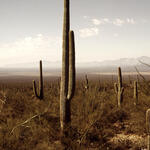- Date: 03 March 2023
- Author: Giavanna Grein, Lead Specialist, Wildlife
Today we commemorate not only World Wildlife Day, but also the 50th anniversary of CITES, the global treaty regulating the trade in wildlife species. A lot has changed in the last half-century: for example, the original signatories to CITES could never have imagined a future in which tiger cubs appear for sale on social media feeds. This is just one of the many ways in which changing technology has created new challenges for those of us striving to disrupt and ultimately end the illegal wildlife trade.
A simple search of social media sites illustrates the volume of wildlife for sale online, both legal and illegal. In just three seconds, and with only one search term, I was able to find elephant ivory for sale on social media. A jump into one hashtag will reveal available listings for various species and products, such as live reptiles, songbirds, primates, tiger cubs and claws, pangolin scales, rhino horns, and shark fins.
- Date: 03 March 2023
Collaboration is a key ingredient to ensuring a successful outcome for any conservation project. And if you want to deliver big conservation results that improve the health of vital habitats around the world, then choosing and working with trusted partners is a must. On World Wildlife Day, WWF celebrates the many conservation partnerships that contribute to securing a future where people, nature and wildlife thrive.
- Date: 02 March 2023
For our Rising Stars series, we're featuring the next generation of leaders who are working toward a more sustainable world. We recently spoke with Ashley Kuhn, Senior Director, Nature & Biodiversity at Procter & Gamble to learn about her role, what she finds most challenging and rewarding, and her advice for those new to the field.
- Date: 01 March 2023
- Author: Jenna Bailey and Cheron Carlson, WWF
Are you ready to become a sustainability changemaker?
In partnership with WWF and Intersectional Environmentalist, Starbucks is launching an updated sustainability course, Greener Apron, on the company’s open-source platform, Starbucks Global Academy.
Greener Apron gives Starbucks partners (employees) and anyone wanting to learn more the information and tools they need to learn about sustainability, leveraging examples from Starbucks’ sustainability initiatives, and how they can make small changes to make a big difference at work and in their communities. The goal of the course is for individuals to be empowered with a personal action plan to move forward in their sustainability journey.
- Date: 28 February 2023
Our oceans provide a range of goods and services, many of which depend on healthy ecosystems.
Global seafood production supports the livelihoods of more than 600 million people, and serves as the primary source of animal protein for approximately 3 billion people. Yet with only about 30 percent of the seafood sold today certified or rated as sustainable, and with more than 30 percent of the world’s fisheries currently over-exploited, unsustainable seafood production poses an immense threat – both to the ecological health of our oceans and to the socio-economic health of the people and companies that depend on them.
- Date: 27 February 2023
Water is a vital element of life and one of the world’s most precious resources. However, with risks such as climate change, population growth, and changing consumption patterns, water is under threat. In fact, freshwater species are declining by 83%, faster than terrestrial or marine species. Humans are also at risk, with 1.1 billion people worldwide lacking access to water. By 2025, two-thirds of the world’s population may face water shortages.
Building resilient communities and ecosystems is a crucial step in the fight against the water crisis and climate change, something that the WWF and The Coca-Cola Company partnership is working toward. Across the world, the partnership has identified priority freshwater basins and collaborated with governments, local communities, and other businesses to ensure the long-term protection and sustainable management of freshwater resources. Coca-Cola’s charitable arm, The Coca-Cola Foundation, has also supported work in this area.
One example of this can be found in the partnership’s work along the Yangtze River in China.
- Date: 16 February 2023
- Author: Katherine Devine and Emily Moberg, WWF Markets Institute
The news is full of headlines about companies making commitments to reduce their greenhouse gas (GHG) emissions. Given the alarming pace of climate change and governments’ failure to slow it, companies’ contributions are vital to both the planet and their bottom lines. Companies have a stake in mitigation efforts as climate change presents a real risk to their operations and infrastructure. However, behind all of the ambitious goalsetting and initial progress lies a secret that’s ripe for exploitation: product-level GHG accounting is so fragmented and flexible that it’s incredibly difficult to hold companies and sectors accountable for emissions reductions. What’s more, because companies can choose which methodologies to use and companies in adjacent industries may choose different methodologies (think: beef and leather), some emissions are simply not being accounted for once we get to the end products.
- Date: 09 February 2023
As fans from all over the world head to Arizona this weekend for football’s big event, thousands of sustainability professionals won’t be far behind. Greenbiz23 – an annual event for sustainability leaders – kicks off on Tuesday, February 14. Once again, WWF experts from across the organization will lead discussions, provide insights, and connect with like-minded individuals, looking to achieve sustainability solutions at a scale and speed that matters.
If you’re participating in GreenBiz23, we invite you to join an event or session featuring WWF experts and of course come say “hello” during conference networking breaks. Here’s where you can find us:
- Date: 07 February 2023
- Author: Suzy Friedman, Senior Director for Food Policy
The Farm Bill is among the most critical pieces of legislation for our food system, our environment, and the health and nutrition of communities across the nation. Its name does not do justice to its broad scope: in addition to providing direct support to US farmers and safety net and nutrition assistance programs for US families and communities, it is also the nation’s largest source of federal funding for private lands conservation and is integral to rural energy and development, forest restoration and conservation, and agricultural research. The 2023 Farm Bill is a critical opportunity to strengthen these programs to better support healthy people, a healthy planet, and a healthy farm economy.
The Farm Bill presents a unique opportunity to come together around a shared vision for food system transformation spanning production, consumption, and waste reduction. The Farm Bill can provide farmers, ranchers, and forest owners with tools to voluntarily advance local and national sustainability goals, play a vital role in the livelihoods of producers and rural communities, and address nutrition, hunger, and food loss and waste.
The Farm Bill, typically renewed by Congress every five years, is up for reauthorization this year. During reauthorization, Congress can make updates and changes to the Farm Bill’s programs and policies. Advancing this shared vision for food system transformation while addressing the considerable impacts of our food and agriculture systems presents a monumental task for the 2023 Farm Bill. Globally, the food and agriculture sectors are a primary and biodiversity loss and a leading source of greenhouse gas (GHG) emissions. Here in the US, conversion from native ecosystems to row crop agriculture resulted in the loss of 1.8 million acres of grassland habitat in the Great Plains in 2020 and 10 million acres between 2016-2020 (approximately half the size of Maine). This large-scale habitat loss is a major contributor to the precipitous decline of grassland birds
and other critical wildlife species including pollinators, the release of immense amounts of sequestered carbon, the loss of critical water quality and quantity benefits, and a reduction in resilience of grassland ecosystems. and biodiversity loss and a leading source of greenhouse gas (GHG) emissions. Here in the US, conversion from native ecosystems to row crop agriculture resulted in the loss of 1.8 million acres of grassland habitat in the Great Plains in 2020 and 10 million acres between 2016-2020 (approximately half the size of Maine). This large-scale habitat loss is a major contributor to the precipitous decline of grassland birds
and other critical wildlife species including pollinators, the release of immense amounts of sequestered carbon, the loss of critical water quality and quantity benefits, and a reduction in resilience of grassland ecosystems.
- Date: 02 February 2023
- Author: Michele Thieme, Deputy Director, Freshwater
After last December’s Convention of Biological Diversity (CBD), just about every aspect of its successes and failures has been dissected and digested at length. But there are two little words from the conference that, weeks later, are still at the forefront of my mind because of the victory they represent. Those words are “inland waters.”
Finally, after years of hard work to raise the profile of inland waters or freshwaters¹ through advocacy with global governments and policymakers, 2022 saw the phrase “inland waters” prominently included in the text of the CBD’s resulting Kunming-Montreal Global Biodiversity Framework.









